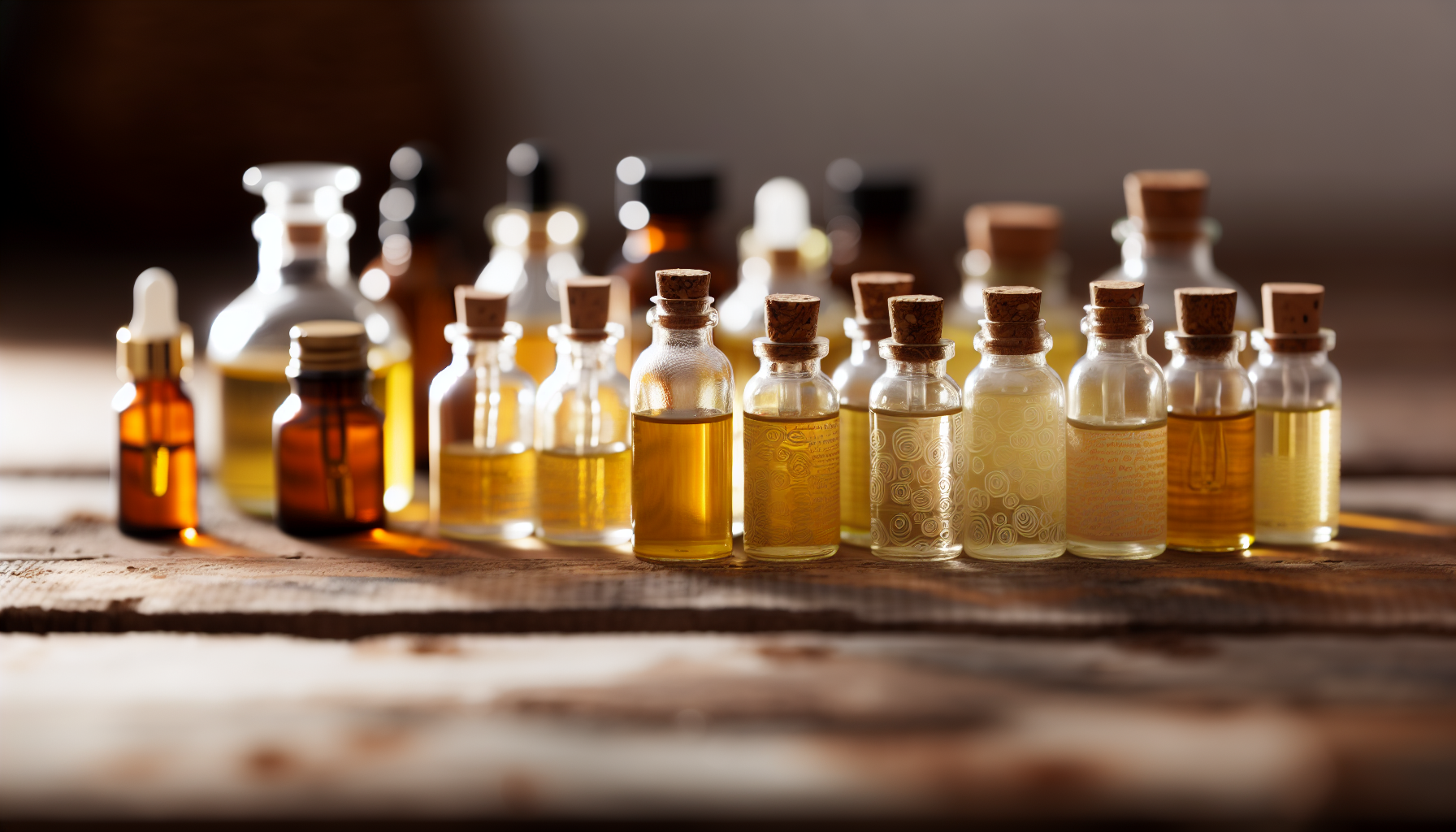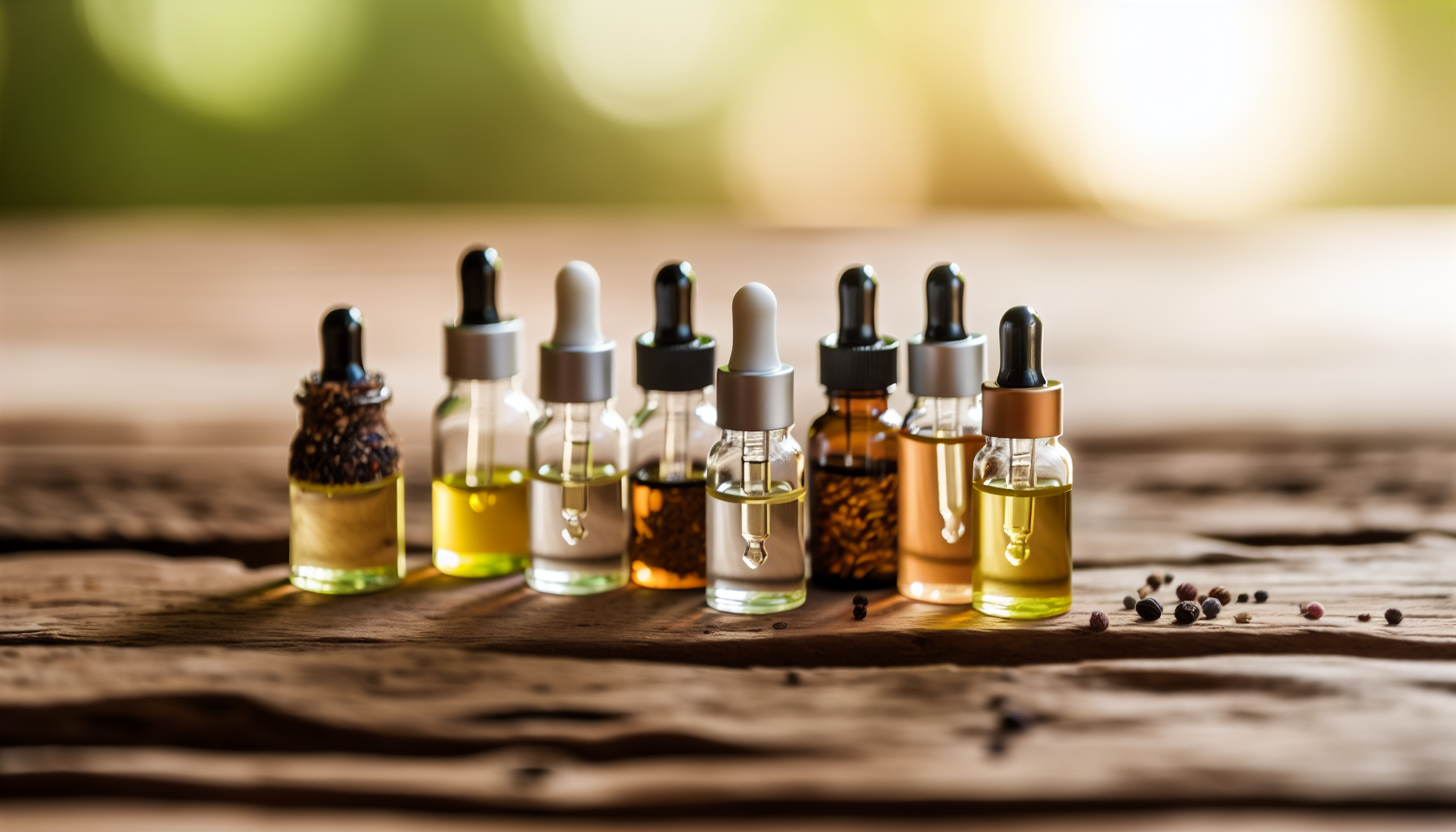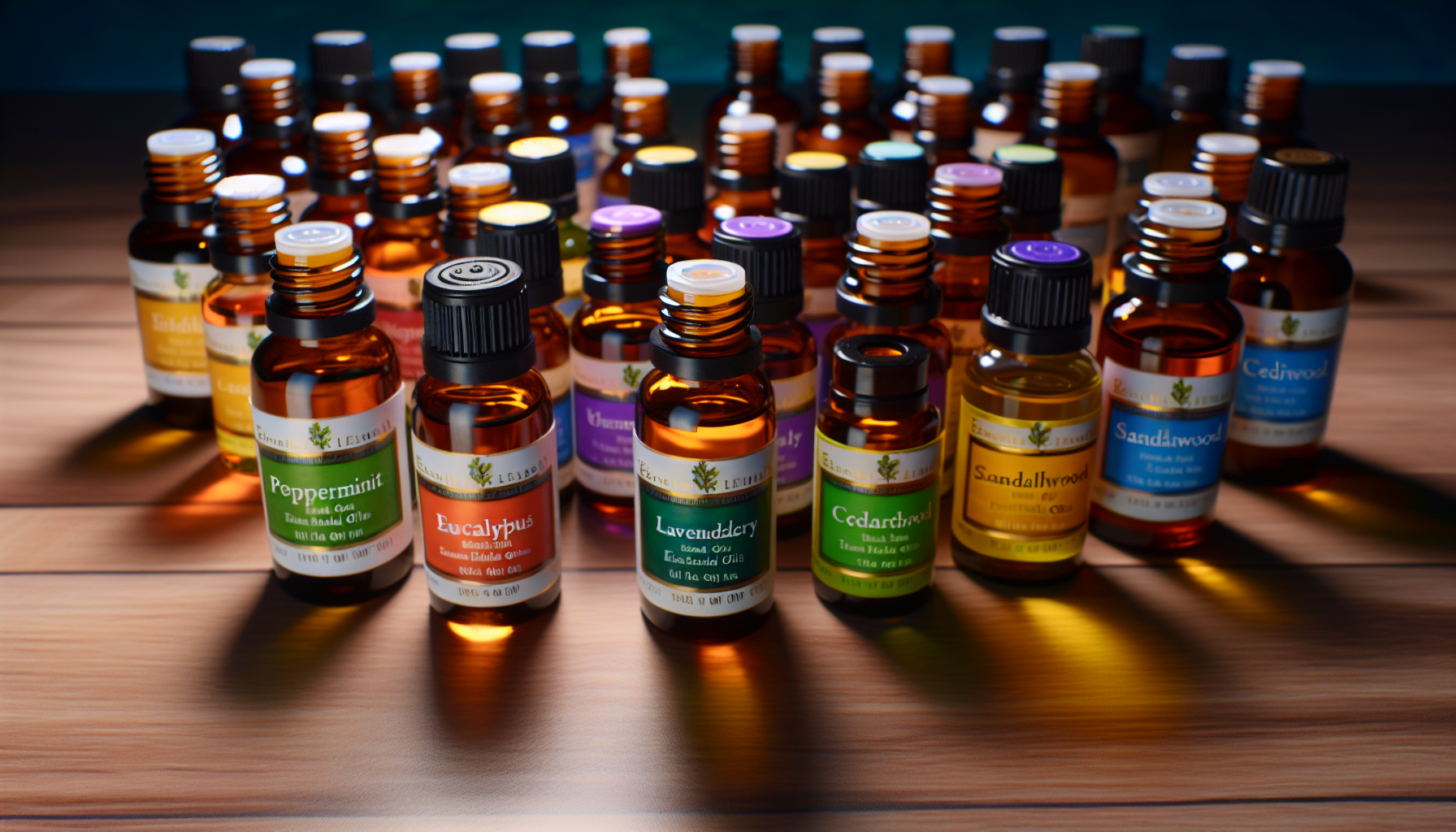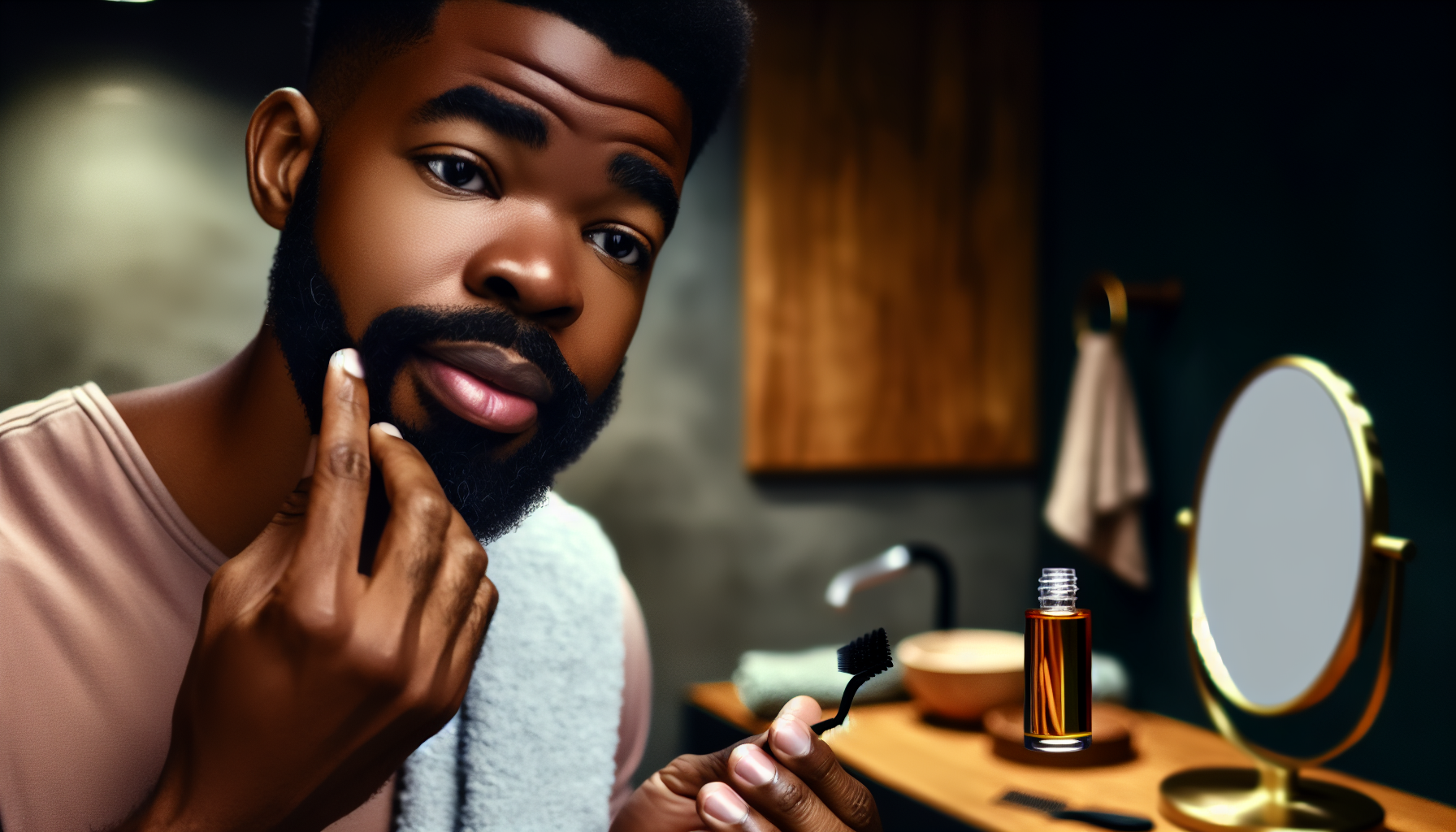Best Oil for Beard Growth Revealed
Looking for the best oils to help grow a stronger and more luscious beard? Well the secret is finding a well concentrated product that contains one of the best oils for beard growth.
For a lot of guys, the search for a full and health beard means you will try a ton of different grooming products. Many of them will claim to have “all-natural ingredients” that are the “secret to beard growth”.
So how do you know which products will actually help you grow that beard you’ve been wanting v.s. which products are just fluff? By looking at the ingredients and understanding what each of the oils in the product do.
Here we will take this head-on – outlining the best oils to nourish your beard. We’ll break down how each oil contributes to growth, from improving follicle health with argan oil to enhancing blood flow with peppermint oil – all with the science and testimonials to back it up.
Key Takeaways
- Beard oils like jojoba, argan, castor, coconut, and peppermint oils are vital for nourishing and promoting the growth of beards, providing benefits such as hydration, strength, and improved blood flow to follicles.
- Carrier oils such as sweet almond, avocado, sunflower seed, and grape seed oils are essential for maintaining moisture and health of facial hair, often used in blends with essential oils for added benefits.
- Proper application of beard oils post-shower, regular grooming, a balanced diet, and the use of beard balms or butters are key to fostering and maintaining a healthy, well-groomed beard.

Understanding Beard Oil Formulas

When examining beard oil formulas, I always ensure the following:
- Natural Oils: The base of any good beard oil is a high-quality, natural carrier oil. Synthetic oils should generally be avoided as they can irritate the skin and don’t provide the same level of nourishment.
- Essential Oils: These are used not only for their scent but also for their therapeutic properties, such as anti-inflammatory and antibacterial effects which can help in maintaining healthy skin under the beard.
- Scent/Fragrance: Ideally, the fragrance should derive from natural essential oils rather than synthetic fragrances, which can potentially cause irritation, particularly on sensitive skin.
A well-formulated beard oil should feel non-greasy and absorb quickly into the beard and skin.
Top Oils for Boosting Beard Growth

When choosing beard products, you should focus on two primary pillars:
- The intricacies of the products formulas ( in other words, does it have enough of its active ingredients to be effective), and
- Does it have the key ingredients that will help spark beard growth
Underneath all of the marketing that men’s grooming companies do, these are the two components that will determine how effective the product is for you.
Commonly found ingredients in beard oils are:
- Jojoba oil
- Castor oil
- Argan oil
- Coconut oil
These oils provide the much-needed moisture, strength, and nourishment to your facial hair. For example, coconut oil is known for promoting hair growth in length and thickness, while peppermint oil increases blood flow to the follicles, bringing nutrients to your beard faster.
Argan Oil
Argan oil, often referred to as ‘Liquid Gold’, is derived from the kernels of the Argan tree in Morocco. It has numerous benefits for the beard and the skin beneath it, including:
- Hydrating the beard and the skin beneath it, enhancing hydration and shine
- Taming frizz
- Reducing dandruff
- Soothing itching
- Promoting a fuller, less patchy beard, thanks to its healing properties
Rich in vitamin A, E, omega-6 fatty acids, linoleic acid, antioxidants, and other essential nutrients, argan oil is a valuable addition to any beard care routine.
Now, who wouldn’t want that?
Jojoba Oil
Another beard care super star is Jojoba oil. It offers several benefits for your beard:
- It mimics natural sebum, providing effective hydration and serving as a barrier to protect the skin underneath your beard.
- Regular application and massage of jojoba oil into the beard can stimulate hair growth by nourishing the hair follicles.
- It enhances the quality of the beard by fortifying the hair follicles and encouraging the recovery of areas with sparse hair.
Thanks to its wax-like structure, jojoba oil penetrates swiftly into the hair and skin without leaving an oily residue. So, you get all the benefits without the greasy feel.
Castor Oil
Castor oil, abundant with essential minerals and nutrients that expedite hair growth, should be a staple in your beard care routine. Here are some benefits of using castor oil for your beard:
- The ricinoleic acid, an omega-9 unsaturated fatty acid found in castor oil, plays a role in promoting hair density and growth.
- It prevents split ends and adds a healthy shine to your beard.
- It softens the hair, making it more manageable.
By incorporating castor oil into your beard care routine, you can promote healthy beard growth and maintain a well-groomed appearance.
Plus, its antimicrobial properties protect the skin and follicles from bacterial and fungal growth, contributing to overall beard health.
Coconut Oil
Not only is coconut oil the darling of the beauty world, but it also holds a special place in beard care. It moisturizes beard hair, reducing the occurrence of dryness and breakage. The oil softens hair while protecting its outer layers, which could encourage hair growth.
Plus, it is enriched with Vitamin E, which is known for repairing damaged hair follicles and improving the shine of beard hair, alongside its ability to prevent split ends.
Peppermint Oil
Think of peppermint oil as a secret weapon for your beard. It offers the following benefits:
- Promotes hair growth
- Strengthens the beard
- Increases blood circulation to hair follicles, ensuring that your beard gets the vital nutrients it needs more effectively
- Offers a refreshing scent
- Provides a cooling effect on the skin
Popular Carrier Oils for Beard Care

Consider carrier oils as the unsung heroes of beard care. They provide hydration that mimics natural sebum and replenish moisture that’s stripped by washing and exposure to environmental factors.
Oils such as argan, jojoba, and coconut oils are instrumental in maintaining a well-hydrated, soft, and healthy beard.
Sweet Almond Oil
The role of sweet almond oil in beard care is renowned. It offers several benefits:
- Softens and conditions the beard, making the hair more manageable
- Non-comedogenic, which means it doesn’t clog pores
- Suitable for all skin types, including those with sensitive skin
Avocado Oil
Avocado oil is also a beneficial carrier oil for your beard. It:
- Rich in vitamins and essential fatty acids
- Moisturizes and nourishes the beard, promoting healthy growth
- Easily absorbed and doesn’t leave an oily residue.
Sunflower Seed Oil
Packed with vitamins and essential nutrients, sunflower seed oil contributes to the health and growth of beard hair. Its fatty acids penetrate and hydrate the hair strands of the beard, conditioning the hair shaft and promoting a smoother, more manageable beard.
Plus, it helps maintain the skin’s moisture level beneath the beard, which is essential for a healthy and lush mane.
Grape Seed Oil
Ideal for a well-groomed appearance, grape seed oil moisturizes facial hair without leaving a greasy residue. Its lightweight consistency ensures it is easily absorbed without leaving a greasy feel, keeping the beard and skin well-hydrated.
Essential Oil Blends for Beard Growth

Creating powerful concoctions that promote beard health and growth, essential oil blends for beard growth combine the benefits of individual oils.
Invigorating Blend
An invigorating blend can be created using peppermint, eucalyptus, and rosemary essential oils. Suitable carrier oils for diluting the essential oils include Argan, Jojoba, or Castor oil.
This blend is not just invigorating for your senses, but also for your beard health!
Soothing Blend
A soothing blend for beard growth can include:
- Lavender essential oil: prized for its anti-inflammatory properties that help soothe skin irritation and reduce beard itch
- Tea tree essential oil: known for its antimicrobial properties that can help prevent infections and promote healthy beard growth
- Chamomile essential oil: known for its calming properties and helps minimize skin irritation and inflammation
The essential oils are typically mixed with carrier oils, such as Argan oil and Jojoba oil, to further enrich the blend’s soothing qualities.
Woodsy Blend
How about a blend that smells as good as it works? The combination of cedarwood, sandalwood, and frankincense essential oils results in a Woodsy Blend that synergizes their individual benefits for optimal beard growth and health.
Carrier oils such as Jojoba, Argan, and Sweet Almond oil, which are all natural oil sources, can be mixed with the Woodsy Blend to enhance hydration and nourishment for the beard.
How to Use Oils for Beard Growth

To maximize the benefits of beard oils for beard growth and health, it’s crucial to know how to apply them properly. Beard oil should be applied at least daily, with factors like beard length, hair type, skin type, and local climate influencing the need for more frequent use.
The correct amount of beard oil to use increases with the length of the beard, ensuring proper coverage and absorption.
Dilution Ratios
Essential oils should always be diluted with carrier oils before being applied to the skin to ensure safe usage and prevent potential irritation. The recommended dilution for essential oils in beard oil blends is typically between 1% and 3% of the total mixture. To accommodate individual skin sensitivity, the concentration of essential oils should be adjusted accordingly, generally within a range of 1-5%.
Application Techniques
Beard oil is most effective when you apply beard oil post-shower to a clean, slightly damp beard as pores are open, aiding in better absorption. Use 3-6 drops for short beards, adjusting for longer beards, and always warm the beard oil between palms before applying to avoid greasiness.
After application, use a comb to distribute the oil evenly and for styling; apply oil frequently, especially after showers or when the beard feels itchy.
How to Choose the Best Beard Oil
When selecting the best beard oil for beard growth, I focus on how the oil complements my skin type and beard, the scents that appeal to my personal taste, and the value I get for the price.
It’s crucial to make an informed decision to support healthy beard growth and skin health.
Considering Your Skin Type
I always recommend that individuals pay close attention to their skin type.
For instance, if I have sensitive skin, choosing a beard oil with hypoallergenic properties is essential to avoid irritation.
Meanwhile, those with dry skin will benefit from oils with moisturizing ingredients like argan or jojoba.
Conversely, a light formula with a non-comedogenic oil is preferable when dealing with acne-prone skin to prevent clogged pores.
- Sensitive skin: Look for hypoallergenic labels.
- Dry skin: Seek oils with argon or jojoba.
- Acne-prone skin: Opt for non-comedogenic oils.
Evaluating Beard Oil Scents
When evaluating beard oil scents, considering the fragrance that fits my personal style is key.
I prefer natural scents derived from essential oils, which can range from woodsy to citrusy.
It’s not just about the aromatic pleasure, though; some scents can also have therapeutic effects.
For example, a beard oil with a hint of peppermint can invigorate the senses and promote circulation to the face.
- Natural scents: Choose oils with essential oils.
- Therapeutic effects: Consider peppermint for invigoration.
Summary
Summing up, the secret to an impressive, healthy beard lies in the right care and the right oils. From Argan to Jojoba, from carrier oils to essential oil blends, your beard needs a mix of nutrients to thrive. But remember, maintaining a healthy beard is more than just using oils. A balanced diet, regular exercise, stress management, proper grooming, and the right lifestyle choices are all part of the process. So, are you ready to unlock your lush mane?
Frequently Asked Questions
How to grow beard faster?
To grow a beard faster, you can try to keep your testosterone levels stable by exercising, eating well, getting enough rest, and exfoliating your skin. These habits can help your beard grow as thick and full as it naturally can.
How often should I apply beard oil?
You should apply beard oil at least daily, but factors like beard length, hair type, skin type, and local climate can determine if you need to use it more often.
How much beard oil should I use?
Use 3-6 drops of beard oil for a short beard and adjust the amount for longer beards, as this ensures proper coverage and absorption.
What ingredients should I look for in a beard oil to improve patchiness?
To minimize patchiness in a beard, I recommend searching for oils that contain ingredients like castor oil or rosemary oil. These components are known for stimulating hair follicles and encouraging hair growth.
How does beard oil contribute to beard thickness and fullness?
Beard oil can contribute to beard thickness and fullness by nourishing the hair and follicles. Oils such as jojoba and argan are often used for their hydrating properties, which can help to create the appearance of a thicker, fuller beard.
What benefits does peppermint oil offer for beard growth?
Peppermint oil is often praised for improving blood circulation to the area applied, which can potentially lead to better beard growth. Furthermore, its menthol content is an added bonus, known for giving a soothing, cooling effect on the skin below the beard.
Are there any specific oils known for softening and moisturizing beards while promoting growth?
Yes, there are oils that serve the dual purpose of softening and moisturizing beards and encouraging growth.
Argan oil, in particular, stands out for its deep moisturizing capabilities and is often recommended for beard care routines.





